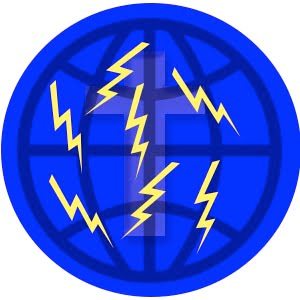11: The Seven Last Plagues – Teaching Plan
Key Thought: Revelation shows seven angels with the seven last plagues. It also reveals those who refuse the mark of the beast and who are protected from these plagues.
March 16, 2019
1. Have a volunteer read Revelation 15:1-8.
- Ask class members to share a thought on what the most important point in this text is.
- What does it mean that no man can enter the temple until the seven last plagues are finished?
- Personal Application: What is the testimony of the tabernacle in heaven and why is it opened? Share your thoughts.
- Case Study: One of your relatives states: “What is this song of Moses that the redeemed sing? Is it found in the Scripture? Do people have to learn it ahead of time?” How would you respond to your relative?
(Note: The song of Moses is a song of victory. It is mentioned in at least two places, both different wording, but the same victory. One is Deuteronomy 32.)
the same victory. One is Deuteronomy 32.)
2. Have a volunteer read Revelation 16:1-11.
- Ask class members to share a short thought on what the most important point is in this passage.
- Why the plagues of the sun’s heat and the sores?
(Note: People worship the sun, so God causes them to end up cursing the sun. False healers cannot heal these sores.) - Personal Application: What are your thoughts about living through the seven last plagues to see Jesus come? Share your thoughts.
- Case Study: One of your friends states, “What is the reason for the seven last plagues, since the lost will be destroyed by fire anyway?” How would you respond to your friend?
(Note: Each plague attacks a form of false worship that has misled mankind, just as the ten plagues in Egypt attacked forms of false worship there.)
3. Have a volunteer read Revelation 16:13,14
- Ask class members to share a short thought on what the main idea of this text is.
- What do the beast, dragon, and false prophet represent?
(Note: The beast is the Roman Catholic Church; the dragon is Pagan Rome – Spiritualism; and the false prophet – fallen Protestantism) - Personal Application: How do you respond to those who see miracle healings and God’s providence in their lives, yet are living outside of Gods will? How can you distinguish between God’s mercy and work for the world and unclean spirits and false worship? Share your thoughts
- Case Study: One of your neighbors states, “Why don’t Adventists get involved in the charismatic movement that is found in all Christian churches? The Holy Spirit is being poured out on many people in power and miracles are being performed.” How would you reply to your neighbor?
4. Have a volunteer read Revelation 16:12.
- Ask class members to share a short thought on what the main idea of this text is.
- What is this water dried up and why is it dried up to prepare the way for the kings of the east?
(Note: See Rev 17:15, Rev 17:13 with Rev 17:16.) - Personal Application: In what ways have you learned not to trust in humans or human institutions? Share your thoughts.
- Case Study: Think of one person who needs to hear a message from this week’s lesson. Tell the class what you plan to do this week to share with them.
(Truth that is not lived, that is not imparted, loses its life-giving power, its healing virtue. Its blessings can be retained only as it is shared.”Ministry of Healing, p. 148).
